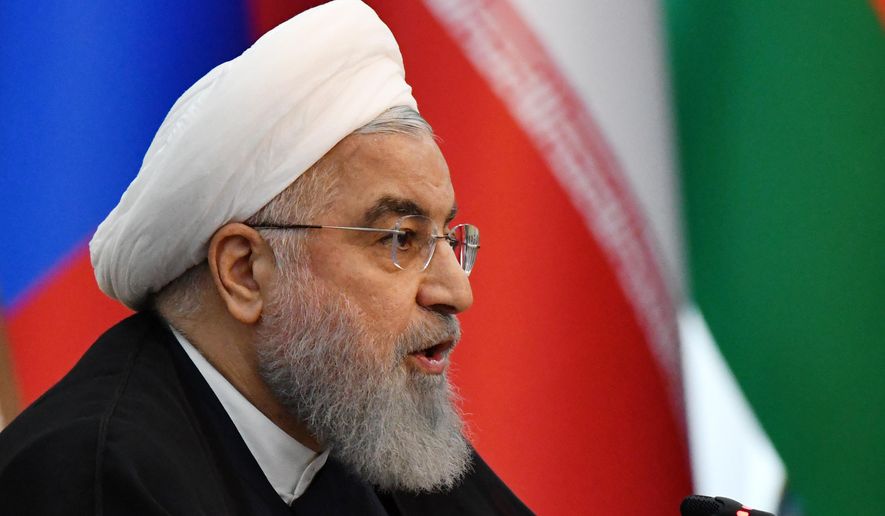Iran could dramatically expand its influence over Iraq, grow its deployment of proxy militias around the Mideast and increasingly use Syria as a base for attacks on Israel if the U.S. does not more aggressively counter the Islamic republic’s ambitions.
That’s the sobering conclusion of a report circulated this week by a Washington think tank known both for its hard-line positions against Iran, and for advocating that the Trump administration ramp up its policy of maximum pressure on Tehran.
The report by the Foundation for the Defense of Democracies broadly warns that the Mideast region will plunge into a war that will ultimately draw the U.S. into another major military response there if Washington does not move quickly and effectively to counter Iranian aggression.
“Burning Bridge: The Iranian Land Corridor to Mediterranean” outlines how Iran is pushing to established a “land bridge” from Tehran to the Mediterranean that has the potential to accelerate weapons shipments to Iran-backed proxies operating in Lebanon and Syria.
The current critical supply route for Iran is an “air bridge” to Damascus, which Iran has used to ship weapons to the Lebanon-based Hezbollah and to send “tens of thousands of fighters to Syria since 2012,” said the report circulated Tuesday.
In the forward attached to the document, the Trump administration’s former National Security Adviser H.R. McMaster wrote that the report sheds “fresh light and understanding on Iran’s sustained campaign to pursue hegemonic influence in the Middle East, export its revolutionary ideology, and threaten Israel and the West.”
“Iran’s effort to establish a land bridge across Syria and Iraq is connected to a four decade-long proxy war that Iran is waging to pursue its revolutionary agenda,” wrote Mr. McMaster, a retired U.S. Army general, who bowed out of his role in the administration last year.
Administration critics, including some Republicans, have warned that current National Security Adviser John R. Bolton — an outspoken hawk on Iran policy — has led President Trump to overreach in his current posture toward Tehran in a way that could lead to military clash.
Tensions between the U.S. and Iran have escalated following Mr. Trump’s withdrawal a year ago from the Obama-era international nuclear deal that had aimed to get Tehran to limit its potential nuclear weapons production capabilities in exchange for sanctions relief.
With the nuclear deal now in limbo, the Trump administration has ramped up sanctions anew against Iran and sought to uphold a global embargo on Iranian crude oil. U.S. officials say Iran has carried out a wave of recent attacks against non-Iranian commercial oil tankers as retaliation to Washington’s moves.
The report circulated by the Foundation for Defense of Democracies (FDD) cites economic sanctions as a way to somewhat contain Iran’s access to it’s much-sought-after “land bridge” to the Mediterranean. The report also calls for more robust regional diplomatic pressure by Washington to establish “capable diplomacy” that can help stifle Tehran’s ambitions.
The document argues that the Trump administration should be very reluctant to fully withdraw U.S. forces from Syria. If the U.S. withdrew, Iran would have substantially fewer barriers to move men and weapons efficiently through war-torn areas of Syria, it said, particularly pointing to activity around the Syrian town of al-Tanf.
“If U.S. troops departed from al-Tanf, the road from Baghdad to Damascus would effectively be open to Iranian traffic,” the report said.
FDD also outlined several military policy recommendations including increasing the U.S. presence in Syria, building a stronger military partnership with Iraq and preparing plans to retake certain strategic areas in Syria, including one known as Al Bukamal.
“The U.S. should work to shut down Tehran’s air bridge to Damascus and prevent a land bridge from becoming operational,” the report concluded. “These cannot be isolated efforts; they must be part of a comprehensive response to Iran’s growing influence in the region.”




Please read our comment policy before commenting.